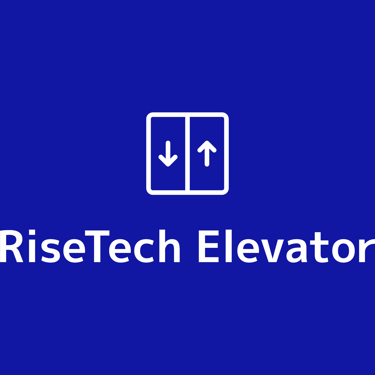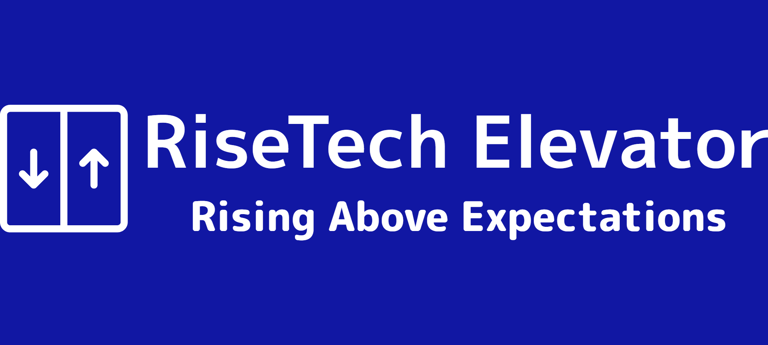Elevator Maintenance in Texas: Stay Compliant, Save Money, and Avoid Costly Breakdowns
🚨 Safety First: Why Regular Elevator Service is a Must! 🚨 Keeping your elevator in top shape isn’t just about compliance-it’s about protecting lives and avoiding costly liability. In Texas, routine maintenance by a TDLR qualified elevator personnel is legally required, but more importantly, it prevents accidents, entrapments, and expensive emergency repairs before they happen. In our latest blog post, we break down why safety should be your #1 priority, the financial risks of neglecting service, and how RiseTech Elevator, LLC is here to keep your business running smoothly-and legally! Read now to stay ahead of potential hazards, lawsuits, and downtime before they become a problem. 🚀🔧 #ElevatorSafety #RiskPrevention #TexasElevatorLaw #RiseTechElevator
3/26/20252 min read


Why Regular Elevator Service in Texas is a Smart Move for Your Business
Keeping Your Elevator Safe, Reliable, and Compliant
Owning or managing a building with an elevator comes with responsibilities—but don’t worry, we’re here to help! Texas requires routine elevator maintenance by a qualified elevator mechanic, and while that might sound like just another regulation, it’s actually a great way to save money and avoid unexpected headaches. Above all, proper maintenance ensures safety—preventing serious accidents, costly liability claims, and potential laws.
The Texas Elevator Safety Law: What You Need to Know
The ASME A17.1-2016 (also known as CSA B44-16 in Canada) is the safety code adopted by TDLR (Texas Department of Licensing and Regulation) for the installation, maintenance, and inspection of elevators, escalators, and related conveyances. This standard sets the minimum requirements to ensure public safety and efficient operation.
Key Highlights of ASME A17.1-2016:
🔹 Routine Maintenance & Inspections – Requires regular service by qualified personnel to prevent failures and ensure compliance with safety standards.
🔹 Entrapment Prevention & Emergency Operations – Mandates emergency communication systems, backup power for evacuation, and procedures to prevent passengers from being trapped.
🔹 Door Protection Requirements – Updates on safety edges, sensors, and reopening devices to reduce the risk of accidents, particularly for children and elderly users.
🔹 Periodic Testing & Load Requirements – Establishes guidelines for elevator testing, including load capacity verification, emergency brake functionality, and fire service recall operation.
🔹 Safety Features for New Installations & Modernizations – Enhances hoistway door interlocks, lighting requirements, and control system redundancies for improved reliability and safety.
🔹 Accessibility Compliance (ADA Considerations) – Ensures elevators remain accessible for all users, including those with disabilities, by maintaining proper dimensions, button heights, and audible/visual indicators.
Why Compliance Matters
Failure to comply with ASME A17.1-2016 can result in TDLR fines, equipment shutdowns, and increased liability in the event of an accident. Regular maintenance and inspections help avoid costly repairs, entrapments, and unexpected downtime. An unsafe elevator can lead to severe injuries or even fatalities—creating a nightmare scenario of lawsuits, lost business, and irreparable reputational damage.
The Cost of Skipping Maintenance (And Why It’s Not Worth It)
No one likes surprise expenses, and an out-of-service elevator is an inconvenience for both building owners and tenants. Here’s how regular maintenance helps:
1. Protecting Passengers and Avoiding Lawsuits
An unsafe elevator is a liability waiting to happen. Regular inspections catch worn-out cables, faulty brakes, or malfunctioning doors before they lead to serious injuries and potential legal battles.
2. Fewer Emergency Repairs
Small issues caught early mean fewer unexpected (and expensive) breakdowns. A well-maintained elevator runs smoothly and saves you money in the long run.
3. Avoiding Entrapments and Downtime
Nobody wants to be stuck in an elevator. Routine service helps spot potential problems before they become major disruptions.
4. Staying on the Right Side of the Law
Texas enforces these regulations for a reason—elevator safety is crucial! Non-compliance can lead to fines of up to $5,000 per violation (TDLR Rule 74.80) and possible equipment shutdowns.
RiseTech Elevator: Here to Keep You Moving
We get it—elevator maintenance isn’t the most exciting part of your day. But that’s why RiseTech Elevator, LLC is here to make it easy! Our TDLR qualified mechanics ensure your elevators stay in top shape, remain compliant, and keep your tenants happy.
Don’t wait for an emergency to think about maintenance. Give us a call today and let’s keep your elevators running smoothly!
Safe. Reliable. Compliant. We’ve got you covered.
RiseTech experts are seasoned professionals specializing in delivering reliable, efficient, and safety-focused solutions for elevator modernization projects, service, and repair backed by deep industry knowledge and a commitment to excellence.
CONTACT


